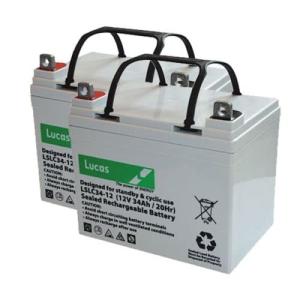Over the last decade, electric mobility scooters have transformed the experience of getting around for individuals with mobility limitations. Among the many advancements in the design and functionality of these scooters, lithium batteries have emerged as a key feature. As pioneers of innovation, these batteries offer numerous advantages that make folding electric mobility scooters more efficient and user-friendly. This guide explores the significance of lithium batteries for folding electric mobility scooters, covering their benefits, limitations, and frequently asked questions.
Understanding Lithium Batteries
Lithium batteries are rechargeable batteries that use lithium ions as the primary component of their electrochemistry. They have rapidly gained popularity across various industries, including consumer electronics, electric vehicles, and medical equipment. The use of lithium batteries in folding electric mobility scooters is particularly noteworthy due to their unique benefits.
Key Features of Lithium Batteries
-
Lightweight: Lithium batteries are considerably lighter than traditional lead-acid batteries, making them easier to transport and maneuver in folding mobility scooters.
-
High Energy Density: Lithium batteries offer a higher energy density than many alternatives, meaning they can store more energy relative to their weight.
-
Longer Lifespan: Typically, lithium batteries have a longer lifespan, often lasting for more than 2,000 charge cycles, whereas lead-acid batteries may need replacement after 500-800 cycles.
-
Faster Charging: Lithium batteries can be charged more quickly, allowing users to spend less time waiting for their scooters to be ready for use.
-
Temperature Resilience: These batteries are better equipped to handle temperature variations, making them suitable for different climates and conditions.
Advantages of Lithium Batteries for Folding Electric Mobility Scooters
As users consider purchasing or upgrading their folding electric mobility scooters, understanding the advantages of lithium batteries becomes imperative. Here are some key benefits:
1. Enhanced Mobility and Portability
Since folding electric scooters are designed for easy transport, the lightweight nature of lithium batteries contributes significantly to mobility. Users can easily fold, unfold, and lift their scooters without the burden of heavy batteries, enabling a more active lifestyle.
2. Improved Range
The efficiency of lithium batteries means that users can expect an extended range on a single charge. Most lithium-powered scooters can travel between 20 to 40 miles, depending on factors like terrain, weight, and riding style. This enhanced range allows for greater freedom and independence.
3. Eco-Friendly
Lithium batteries have lower environmental impact compared to lead-acid alternatives. They are mercury-free, recyclable, and produce fewer harmful emissions during their lifecycle. For eco-conscious consumers, lithium batteries present a responsible choice.
4. Exceptional Performance
These batteries maintain consistent performance even in challenging conditions. Riders will experience smoother acceleration and braking, contributing to an improved overall driving experience.
5. Low Maintenance
Lithium batteries require minimal maintenance compared to traditional batteries. They do not need to be filled with water or routinely tested for specific gravity, which saves users time and effort.
Limitations of Lithium Batteries
While lithium batteries offer numerous benefits, they are not without limitations. Here are some points to consider:
1. Higher Initial Cost
Lithium batteries tend to carry a higher upfront cost than lead-acid batteries. However, factoring in lifetime savings due to durability, longevity, and less frequent replacements may lead to cost-effectiveness in the long run.
2. Sensitive to Extreme Temperatures
Although lithium batteries are resilient, they are sensitive to extreme heat or cold. Prolonged exposure to such conditions can degrade performance and reduce battery life.
3. Specific Charging Requirements
Lithium batteries often require specialized chargers. Users must ensure they use the appropriate equipment to avoid damaging the battery.
Frequently Asked Questions (FAQs)
Q: How long do lithium batteries last?
A: Typically, lithium batteries can last between 2,000 to 3,000 charge cycles, which translates to several years of usage depending on frequency.
Q: Can I leave my lithium battery charging overnight?
A: It is generally safe to charge lithium batteries overnight if using a quality charger designed for lithium technology. However, it is recommended to monitor the charging process when possible.
Q: Are lithium batteries safer than lead-acid batteries?
A: Yes, while no battery is entirely risk-free, lithium batteries have a lower likelihood of leaking or catching fire compared to traditional lead-acid batteries when used correctly.
Q: How do I maintain a lithium battery for my mobility scooter?
A: To maintain a lithium battery, regularly check for dust or damage, charge it properly using the recommended charger, and store it in a cool, dry place when not in use.
Q: What is the typical range of a folding electric mobility scooter with a lithium battery?
A: Depending on factors such as the scooter model and rider weight, most lithium battery-powered scooters can travel between 20 and 40 miles on a single charge.
Lithium batteries represent a significant advancement in the development of folding electric mobility scooters. Their array of advantages, such as lightweight design, long lifespan, quick charging, and environmental benefits, positions them as a frontrunner in enhancing user experience and mobility. While there are some limitations to consider, the advantages often outweigh the drawbacks, making lithium batteries a worthwhile investment for anyone looking to improve their mobility. As technology continues to evolve, the integration of lithium batteries in mobility scooters promises to further enhance independence and quality of life for those in need.






